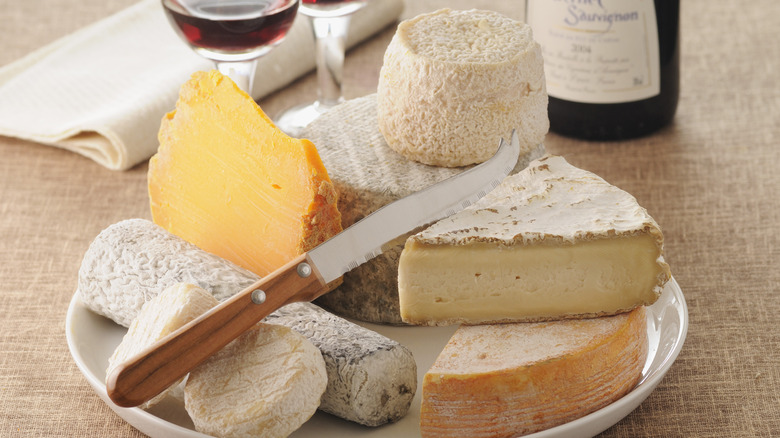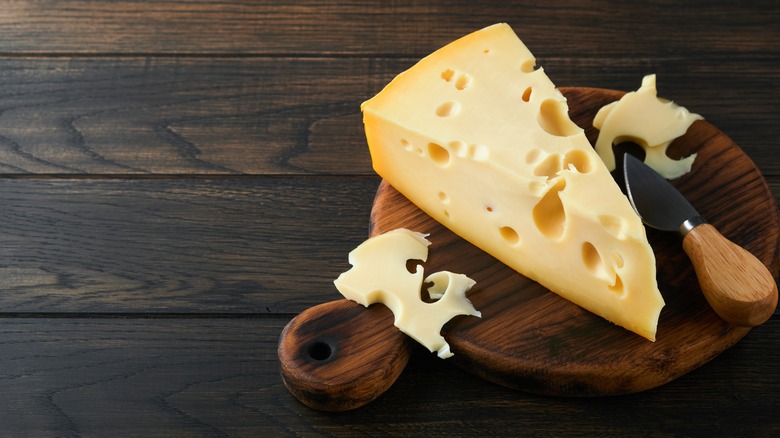The Reason Europeans Eat Cheese After Dinner
To most of us, a cheese and charcuterie board is the perfect hors d'oeuvre: A crowd-pleasing grazing selection to nosh on while we schmooze before dinner. But according to the French, cheese doesn't belong here — cheese is supposed to be eaten after the meal. Just look at classic European pairing traditions that associate cheeses with after-dinner drinks: British stilton and port or Spanish garrotxa and sherry.
So, why do so many Europeans eat cheese after dinner, instead of beforehand? There are several good reasons. For starters, the savoriness can go better with after-dinner drinks and help bring out their sweetness without overloading on sugar — and if you've already eaten, you're less likely to stuff yourself with fancy cheeses.
Some culture bloggers, in attempting to explain the health benefits of cheese, claim that cheese is alkaline and, by neutralizing the acids in food, can aid digestion. This is not true; cheeses have a lower pH than unprocessed milk and are also acid-forming, meaning they can trigger acid reflux. Science does save the day, though: One of the acids in higher-fat cheeses is conjugated linoleic acid, which has been linked to reduced inflammation and a more robust immune system — one of many reasons you should eat more goat cheese.
But, the biggest reason you should consider eating cheese after dinner has nothing to do with how it affects you: It's all about the cheese itself. That's because cheese is best at room temperature, so the European tradition can help it taste the way it should.
You should let your cheese sit out while you're eating dinner
Asking you to take your cheese out of the fridge — and then wait to eat it?! We know, it's a tough task. But, room-temperature cheese is better for a variety of reasons, so the European custom of eating cheese after dinner instead of beforehand can actually improve your cheese experience.
There's a good scientific reason for this, too. Like many foods, much of the glorious flavor in cheese comes from fat-soluble molecules. Under warmer conditions closer to our own body temp, the volatile aromatic compounds are more easily detectable by our senses, so we're better able to pick up nuanced flavors. Unexpectedly, this is also the reason chilled drinks can taste better through a straw — our taste buds aren't overwhelmed by cold.
And cheeses need time and space to breathe, too — it's the same rationale behind why wines are decanted. Creating a full barrier between your cheese and air is a mistake, and it can even make your cheese start to smell like ammonia floor cleaner.
So, when you're setting your cheese on the counter to warm up, drape something loosely over it like plastic wrap, special cheese paper, or parchment. Your cheese will taste better — and, just as the European custom calls for, you'll end your night the right way.

